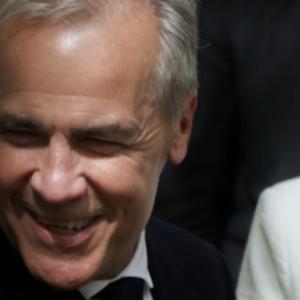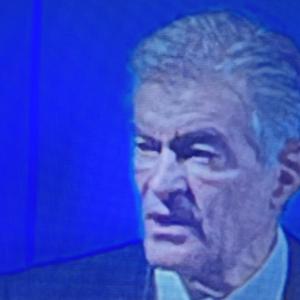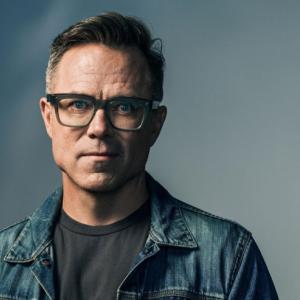Experts speak about coping with the stresses of emergency medicine

“The average emergency room doctor gets pulled from Task A to Task B every three to five minutes.”…
“Is it always this busy?”
“Nope, it gets busier.”
So goes the dialogue in The Pitt, a TV show that has drawn a devoted following among emergency physicians for its realistic portrayal of a hectic emergency department (ED) – and the emotional stress it places on health-care professionals. In the show’s season one finale, the charge nurse resigns after a series of emotionally draining incidents – just like in real life.
Studies have shown that in the years following the start of the COVID-19 pandemic, rates of burnout and extreme fatigue have increased among ED staff.
Kerstin de Wit is an emergency physician and lead researcher on one such study. She says that contrary to popular belief, early in the pandemic burnout rates were surprisingly low. “Burnout levels were low compared to how they had been reported [in previous years] … it was only like 17 per cent … At the start of something, people really put a lot of energy and effort in and are a bit optimistic.”
However, de Wit says she’s surveyed this same group of emergency physicians three times now and “every time we surveyed them, the average score [for burnout] has worsened over time.” She will be analyzing the latest batch of data for publication later this summer.
The rise in ED physician burnout is something we should be concerned about, de Wit says, as physician burnout can have far-reaching consequences. “[Studies have shown] quite a clear correlation between higher burnout levels and medical error, as well as depression and anxiety but, even more concerningly, suicide.”
Although there are no studies in Canada that compare the mental well-being of emergency physicians with other medical specialties specifically, de Wit says she imagines that in general ED physicians are likely doing worse in terms of general mental well-being. “Conditions in emergency departments in Canada have deteriorated much faster and at a much greater rate than what we’ve seen in other specialties … We’re really seeing the patient overload and there’s many knock-on effects of that.”
According to data from CIHI’s National Ambulatory Care Reporting System, unscheduled ED visits increased from 15.1 million in 2021 to 2022 to 15.5 million in 2023 to 2024. Across the country, the median length of stays in the ED for 2024 to 2025 varies, with Quebec leading at nearly 5.5 hours and Newfoundland and Labrador reporting the lowest with just under three hours. As one recent Montreal Economic Institute (MEI) study notes, “all the provinces for which data is available have seen both their median length of stay and the median time to initial physician assessment increase.”
“Emergency medicine isn’t for everyone,” says de Wit, “but … we as emergency physicians get a kick out of helping people in an emergency, so that in itself is not necessarily stressful for us – it’s what we’re trained to do. It only gets stressful and difficult to deal with when we’re not able to help them because they’re in the waiting room and there’s no beds, or we can’t give them an IV or order an X-ray. The moral distress of seeing people suffering is the most damaging.”
De Wit says the roots of physician overwhelm are largely systemic – we need much more investment in health care, specifically in long-term care or home care for Canada’s aging population. She adds that hospitals need more space and improved staffing.
While many of the stresses are exacerbated by system-wide problems outside of the immediate control of most ED doctors, there are things that emergency doctors can do to take care of themselves and stay motivated through trying times.
We spoke with a panel of experts to find out how they manage the stresses of the job and what advice they might have for anyone considering a career in emergency medicine.

Emergency physicians are the Navy SEALs of health care – minus the wetsuits, but with just as much adrenaline and arguably worse coffee. In today’s health-care climate, crises are everywhere, the pressure is real – and relentless. If you’re feeling it, you’re not alone. But surviving, even thriving, is possible with the right strategies.
At work, remember the positives. Yes, the chaos is omnipresent, but so are the golden moments. The colleague who makes you laugh during sign-over. The grateful family member who catches your eye and whispers a heartfelt “thank you.” The quiet pride of nailing a tough diagnosis or catching something subtle that changed a patient’s outcome. These are not small things – they are ballast. They remind us why we chose this path in the first place. Medicine, after all, is a privilege wrapped in scrubs.
At home, build your fortress. Foster a circle of friends and family you can be real with – your “failure friends,” the ones you can call after a shift and say, “Today was rough.” Prioritize your physical health – not as an aspirational wellness poster, but as a survival necessity. Eat decent food. Move your body. Sleep like it’s your job (because, frankly, it is). And for heaven’s sake, play. Laugh. Watch ridiculous movies. Learn to make sushi. Pick up the guitar. Whatever lights your spark, make space for it. Joy is not optional – it’s fuel.
And for both worlds, master stress management. Not just “try yoga once” or “breathe when you remember.” I mean really learn how to metabolize stress like it’s your side hustle. Read about it. Practice it. Embody it. These skills aren’t fluff – they’re armour. The better you get at managing stress, the longer you’ll last in this deeply meaningful, sometimes soul-bruising profession.
In the end, emergency medicine will always be intense. But with the right mindset, tools and tribe, you can navigate it not just with resilience but with grace, humor and even joy. And if all else fails … remember there’s always snacks in the nurses’ fridge. Probably.

When a shift is busy and wait times are long, I have made it a habit of apologizing to patients as I walk into a room (or a hallway or an unconventional care space) and thanking them for their patience and understanding. Not once has a patient blamed me for their wait or difficulty, and it establishes that “we’re in this together” and “I’m here to care for you” up front.
It is a brief, re-centering moment that means the patient and I regain control of what feels, at times, like a very chaotic, loud and unnatural environment and allows for focus and facilitates the type of care interaction that led me to medicine as a career – to care for people when they are sick or distressed.
I am also grateful that as a journal editor, I have the opportunity to bring perspectives gained from clinical experiences and stories from colleagues to our pages at CMAJ. At this stage of my career, it is extremely rewarding to facilitate a better understanding of health-care systems challenges and possible solutions to broad audiences.
If I were to give some advice to early career clinicians, it would be to build a skillset that enables advocacy for patients beyond the bedside.

I’ve never really felt irrecoverable burnout and I think part of it is because I keep on returning to the social mission of medicine, which is to open its arms ever wider to more people until we reach everybody. No matter how non-emergent a person’s visit to the emergency department is, it’s still oftentimes the most important minutes of that person’s day. Part of the way to recover from burnout is to be able to retreat to a place where you feel you’re actually living your values and being able to express them in your job. Medicine is great that way.
When it comes to general wellness, the first question that needs to be answered is appropriate staffing. If you don’t have enough people to be there with you to support the workload, you lose two of the most key features of being well in whatever position you are, which is autonomy and flexibility.
If you’re well-staffed enough that once your shift is over the other person arrives ready and able to assume the workload and you can trust them, then you’ve created an environment where you’re then able to focus on doing more of your work less as a physician and more as a human being. That sometimes requires being more honest and vulnerable with your patients too, being able to turn to them and say, “I’m sorry, I’m just having a really tough day,” which can be considered anathema in medical training.
Another in-the-moment strategy is to be able to apply a certain type of mindfulness that allows you the opportunity to not respond from a place of emotion.
The best piece of advice that I’ve ever received was as a resident, and the staff doctor said to me, ‘Don’t let your lifestyle expand to accommodate your potential income.’ If you’re new to the field and you say, ‘I can make X amount of dollars if I work X number of shifts,’ and you put the pedal to the metal, all of a sudden you need to work a certain amount to afford your lifestyle.
That is a source of stress on its own.
Lastly, I define “wellness” as being able to look forward to going to work most days. If it’s every day, you’ve got a problem at home, but most days is feasible. One of my colleagues says that he’s working the same shifts he would be doing if he won the lottery. He’s doing it because he likes it.
I believe that medicine is a calling, it’s a lifelong career and it just becomes richer over time. Sure, the frustrations are constant, but the joys become richer and more full.

We’ve seen a lot of pressures in the last five years, like COVID, overcrowding and, especially in areas where I work, a lot of people experiencing social pressures like homelessness and mental health issues.
It can be hard sometimes not to take that home. But I think within the field of emergency medicine, we should actively feel encouraged to really think about the different buckets in our lives. That includes understanding what can help or harm when it comes to our professional or personal wellness.
So, for me, I manage it by using a bunch of different tools in my toolkit. On the personal side, I try to do things that fill my bucket – getting outside or making time for getting on my bike. Also, there are a few friends that live away that I check in with every few months. They have a good way of pulling out things that are bothering me, sometimes without me even realizing. It’s with people that I trust, and helps me be the most centered version of myself when I go into work.
One of the big pieces of advice I’d been given is to recognize that we’re just one part of the system and you don’t have to fix the entire system right away.
Working on projects that really energize you can also be a huge protective factor to prevent burnout.
Lastly, when you’re in your early career, med school or residency, the focus is to ensure your academic work is up to speed. But it’s also really important not to deprioritize your community. Staying connected to your community really can help recharge you and help you become a more complete physician.

When you’re in the moment on the job, I find it helps a lot to take a step back and try to understand your patients and colleagues better as people. It’s about empathy. Patients are not medical conditions, they’re not diagnoses, they’re people.
When I’m off shift, I really try to focus on everything but work. Sometimes I don’t succeed, but there’s always effort put in. I find spending time with family and friends really fulfilling, so I try to protect time to spend with them every day.
I exercise a couple times a week. I’m not doing high-intensity training like I used to, but I try to get regular exercise and spend time in nature. I also find I was happiest when I didn’t have a really long commute. Commuting really creates extra stress and it’s hard being on the road after a tiring shift.
In the long term, find out what it is about your career or personal life that you’re really passionate about, ask yourself what you would do for free, and do more of that.
For me, I’ve dabbled in multiple things throughout my career. Most recently, it’s work that I do on a volunteer basis in disaster preparedness and response. I do a lot of committee work, but I do it for free and I love it.
We as physicians have a culture of self-sacrifice and right now there’s a shortage of family doctors and emergency physicians in every single place that you can think of in Canada, so it’s just easy to just be a “yes” person in our field.
But our capacity isn’t unlimited. There’s enough work out there for 100 of me – so setting clear limits on what I’m willing to do is really important. There’s a cost to overextending yourself. I’d rather work half-time at a sustainable pace than be full-time and burn out of the profession.

I often get asked about my advice for a medical student considering pursuing a career in emergency medicine. The answer is incredibly complicated. On one hand, no one can be unaware that our profession is under siege. Our burnout rates top all specialties, and it seems the only thing consistent over the past five years is that a new crisis lurks around every corner.
On the other hand, what often gets lost is what an amazing career choice emergency medicine is. If you love interacting with people, love unpredictability and variety, embrace the excitement of it, and remind yourself of the impact you have on hundreds of patients who have come to the emergency department for help, it is a great profession.
My best advice is to go into the profession with eyes wide open to both of these very real and important forces. Be purposeful with ensuring that you are staying afloat, that you are being mindful in both your impact and your limitations to fix anything and everyone, and to savour the little moments where you made a difference. By being purposeful in the way you approach a shift, schedule your life, set your goals, monitor your health, you can and will have an amazing career. We just don’t have the luxury anymore to not monitor ourselves, given the extreme pressures we face.
Burnout is an occupational hazard, and we individually do not have the ability to change that. That’s the system’s responsibility, and many people are moving the needle for improvement. For yourself, operating day to day, it’s important to maximize things that we know make a difference in our wellbeing. The ability to feel like your work is impactful, the people and connections we make at work, and the ability to feel like you have some degree of control to make your job easier and more efficient. Find your mentors, find places that have a culture where you can be connected and try to make small incremental changes that simplify your job, where your effort directly translates into the care of the patient in front of you. Emergency medicine is an amazing career, and if you choose it, I hope you have a long and fulfilling career.









